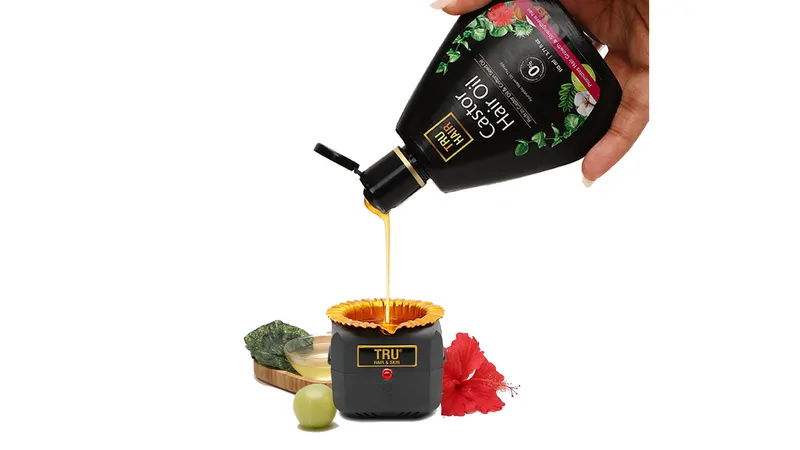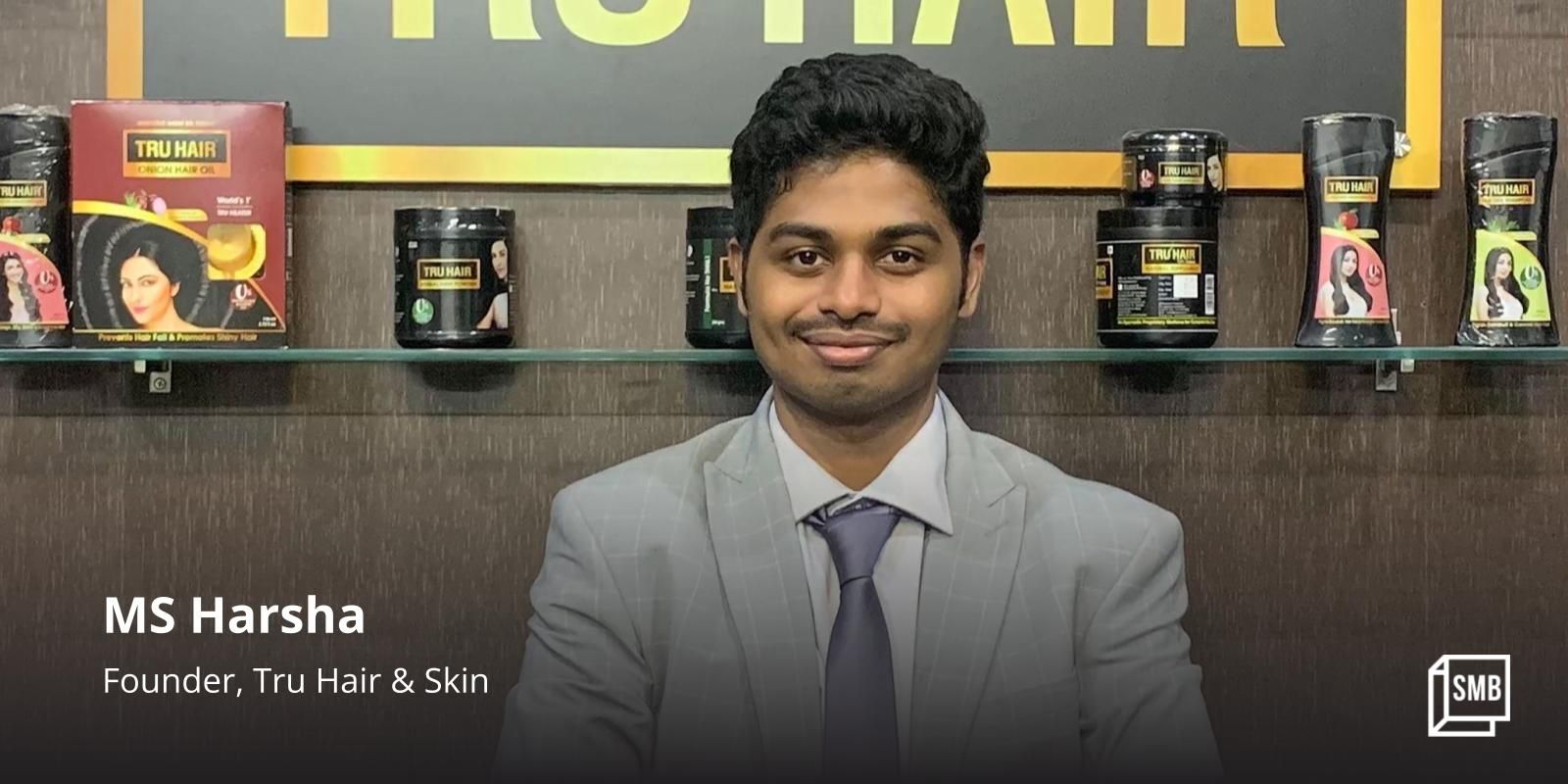This haircare and skincare brand is using tech to revive Ayurvedic practice
Tru Hair launched a patented hair oil heater in 2020. The company has served more than four lakh customers with its hair and skincare products.
Key Takeaways
- The vision behind Tru Hair & Skin is to integrate tech into FMCG products.
- The company entered the market with a patented hair oil heater in 2020.
- It expects a year-on-year (YoY) growth of 200% in the next fiscal with its omnichannel approach.
In Indian households, elders often advise applying warm oil to the hair and leaving it overnight. This old Ayurvedic practice is also backed by studies that say it helps hair health and improves blood circulation on the scalp.
However, the practice is gradually fading away as heating the oil is considered tedious and time-consuming.
To solve this problem, MS Harsha founded in 2020, with an undisclosed initial investment from its sister company, Med Manor. After two years of research and iterations, the Hyderabad-based company created its first patented oil heater for customers.
Finding the gap
Harsha felt there was a lack of innovation in the FMCG sector.
“The innovations that happen in this segment are in product formulation. Technology was not getting integrated into the products that could make the experience better,” the Founder of Tru Hair & Skin tells SMBStory.
While working as Executive Director at Hyderabad-based pharmaceutical company Med Manor Organics, he saw the company conduct research in 2018 to move some dermatology products to OTC (over-the-counter) so that they could be purchased without a prescription. The research revealed that clients were willing to try new products when it came to hair oil.
Harsha then began working with Ayurvedic doctors associated with Med Manor Organics and found out that any oil works better if one warms it before applying it.
“The absorption is better. If you’re trying to solve any hair-related issue, the only way it can happen is if internally the blood circulation improves because the nutrients are supplied through blood,” he adds.
An internal survey of around 15,000 people in south India revealed that though 70% of them knew about the benefits of hot oil, only 12%-13% were actually practising it. Harsha felt that he could bridge this gap.
Developing the product
It took around two years for Harsha to find the people who could develop the products so that it wasn’t priced higher than Rs 300.
The aim was to penetrate Tier II and III markets. “Chinese and Korean companies did not show much interest because oil is not a very common product there. In India, people would reject it because the concept was very new to them,” he adds.
In 2019, he got a prototype created externally. He then found a few manufacturers in Hyderabad who developed the product further, with most of the parts available in India—except one imported from South Korea.

Tru Hair Oil with Oil Heater
The machine heats the oil to 65 degrees Celcius, after which it automatically gets shut.
Tru Hair & Skin created the oil with the assistance of Ayurvedic experts and using natural ingredients. The company has a team size of around 55 people, including eight Ayurvedic doctors.
Overcoming challenges
The company was about to launch its products and had received orders from distributors when the pandemic struck in 2020. While it ran advertisements, the products could not reach the customers due to supply chain constraints.
"We had sent our supplies but they never made it to the distributors. The products got stuck in the warehouse. It was worth around Rs 1 crore," Harsha adds.
In August 2020, he decided to use online channels for distribution. Tru Hair & Skin approached Filtercopy for product integration in a few of their videos. “We sold thousands of units in just two or three days,” says Harsha.
Building an omnichannel brand
The company claims its products are free of parabens, sulfates, LLP, or other potentially hazardous chemicals. It now has 14 SKUs in the haircare segment, including hair oil, shampoo, conditioner, hair mask, supplement, and hair serum.
Harsha says 81% of Tru Hair & Skin’s customers were satisfied with the products, leading to the demand rippling to other hair care products. To improve the products and customer retention, the company created a three-factor hair analysis—a questionnaire that it uses to recommend products to customers.
Tru Hair & Skin operates mostly in south India where it is available across 15,000 retail stores. It operates seven kiosks in Tier II cities in Andhra Pradesh and Telangana.
The average selling price of all their haircare and skincare products is Rs 350, says Harsha. The company sells through its website and through ecommerce platforms, including Amazon and Flipkart.
On the omnichannel front, the company competes with Mamaearth, Kesh King, Emami, and Parachute. However, Harsh says the use of technology sets it apart, along with quality and price points.
Future plans
Tru Hair & Skin recently launched a skincare line with 13 SKUs, including body butter with a free heater.

Tru' Skincare Products
In FY22, the company saw a year-on-year (YoY) growth of 200% in revenue and expects to close FY23 with an YoY growth of 150%. With its offline expansion ambitions, it anticipates 200% YoY growth in the following fiscal year. It also plans to penetrate deeper into Tier II and III cities in south India.
“We want to build a strong distribution network in south India. We get a good response from North Indian states as well but the offline expansion would take time,” says the founder.
Edited by Kanishk Singh






